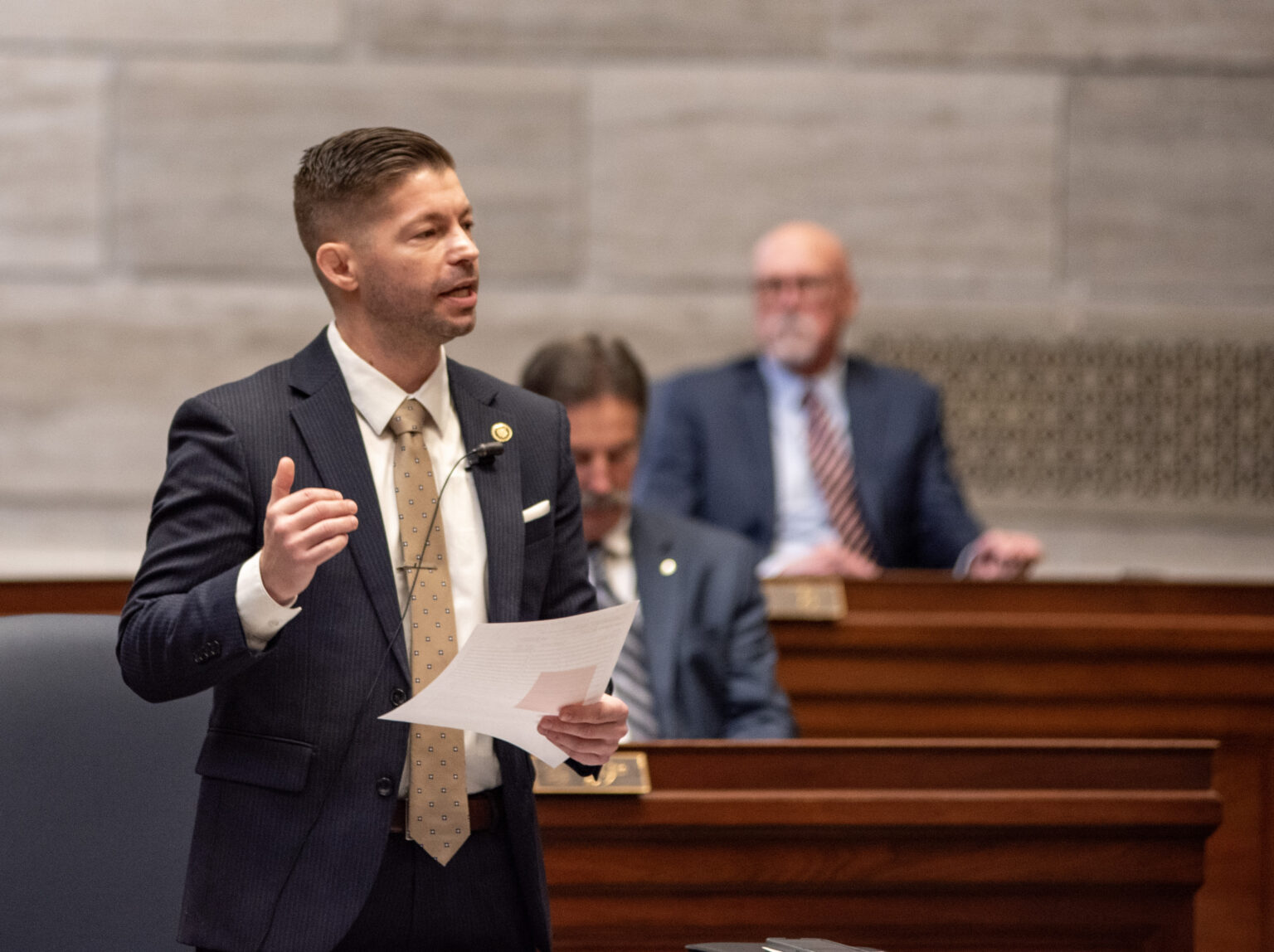Home » News » 2025 » February
News Brief
Feb. 19, 2025 |
By: Rudi Keller - Missouri Independent
Plan to shift from income tax to sales tax advances to Missouri Senate

By Rudi Keller - Missouri Independent
A plan to make Missouri dependent on sales tax for general revenue by eliminating the income tax is heading to the state Senate for debate after a party-line committee vote on Wednesday.
Two proposals — one to immediately change the state income tax to a flat tax of 4% and another a proposed constitutional amendment to allow the transition to sales taxes for revenue — make up the package intended to keep Republicans’ campaign promise to eliminate the state income tax.
If the constitutional amendment passes, it would put the income tax on the path to elimination.
The fiscal note for the flat-tax bill forecasts an immediate reduction in state revenues of about $661 million and projects it will be 2067 or later before the income tax disappears.
The two proposals were each approved Wednesday on a 5-2 vote in the Senate Economic and Workforce Development Committee, with all Republicans in support and Democrats opposed.
Democratic state Sen. Barbara Washington of Kansas City said she’s worried about the impact of the immediate tax cut.
“I don’t see a clear plan as to how we make this money up,” Washington said.
The income tax is a tax on productivity, and shifting taxes to other areas will help the economy, said Republican state Sen. Ben Brown of Washington, chairman of the committee and sponsor of the two bills.
“That has a more negative impact in our society than taxes in other areas,” Brown said of the income tax.
The top marginal rate for Missouri’s income tax has declined from 6% in 2015 to 4.7% this year under a design to slowly cut it as revenue increases that began with legislation passed in 2014.
Two future tax cuts, to a 4.5% rate, are already in state law and will take effect if general revenue growth hits targets.
Income tax remains the single largest portion of state general revenue, with the individual income tax contributing 65% and the corporate income tax about 7% of the $13.4 billion received in fiscal 2024.
The tax cut bill passed in 2014 also began indexing state tax brackets, which had not been changed since the 1930s, for inflation. The top tax rate applies to taxable income of more than $8,900, which is about $23,500 in total income when the standard deduction is included.
The tie between the two measures takes effect after the switch to a flat tax and a statewide vote.
The constitutional proposal, intended to be on a ballot by November 2026, would create a mechanism for limiting the growth in state spending and directing revenue in excess of the cap to a special fund dedicated to income tax reduction.
When the special fund holds at least $120 million, the state income tax rate would be cut by one-tenth of a percentage point. In years when the reduction is authorized, every additional $60 million in the fund would add a rate cut of one-twentieth of a percentage point.
If both conditions were met for the first reduction, the rate would fall from 4% to 3.85%.
While every Republican on the committee voted for the measures, at least one showed he’s nervous about the key revenue-raising portion of the proposal — an expanded sales tax.
State Sen. Kurtis Gregory of Marshall said he couldn’t go along with any proposal that repealed sales tax exemptions enjoyed by farmers. Farmers don’t pay sales tax on fertilizer, fuel for farm vehicles and a host of other products.
“I don’t know where that sales tax rate is going to end up, but I’m just instantly looking at some of this and folks are going to be seeing a $50 to maybe $60 an acre increase in cost of production of row crops,” Gregory said.
The constitutional amendment does not directly repeal any sales tax exemption, Brown said.
“I don’t see anything that would be impacted one way or another by this bill,” he said.
It does repeal a 2016 initiative, placed on the ballot by Missouri Realtors, that barred lawmakers from imposing sales tax on any market transaction “that was not subject to sales, use or similar transaction-based tax on January 1, 2015.”
Along with preventing any effort to tax services such as mechanic’s labor or tax accounting, the amendment protected from repeal exemptions to the sales tax on tangible goods in law at the time, such as prescription drugs and the general revenue portion of sales tax on groceries.
Retail sales in Missouri are taxed at 4.225% for state purposes — 3% for general revenue, 1% for public schools, 0.125% for the Department of Conservation and 0.1% for state parks and soil conservation. Local option sales taxes are in addition to the state tax and push the total rate in some areas above 10%.
Brown’s proposal would allow a state tax of up to 4% — 3.775% for general revenue and schools plus the conservation and parks taxes. The tax would be applied to “all sellers for the privilege of selling tangible personal property or rendering taxable services at retail in this state” and take effect with the signing of a bill expanding sales tax to items exempted prior to Jan. 1, 2015.
The constitutional amendment does target one service with a special, higher tax. Lobbying firms would be required to pay a 6% sales tax on top of the general sales tax of up to 4%.
Missouri Realtors, who have shown substantial financial strength in campaigns, will oppose any effort to weaken the provisions added to the constitution in 2016, said Bobbi Howe, president of the Realtors
“Adding new taxes to services Missourians use every day,” Howe said, “is not sound policy and it unfairly impacts those least able to pay.”
![]()






